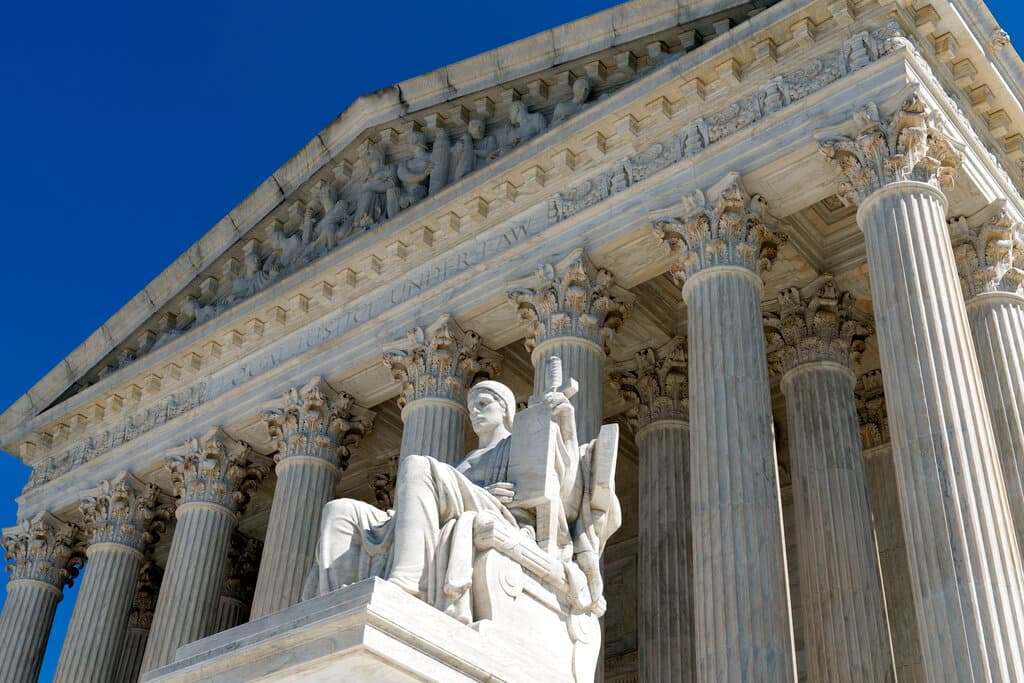Supreme Court To Hear Landmark Case Alleging Efforts by Biden’s ‘Ministry of Truth’ To Suppress Online Speech
The court could hand a significant victory to free speech advocates by the end of this term.

The Supreme Court will hear arguments on Monday in a case that challenges the federal government’s ability to communicate with social media companies and news platforms for the purpose of tamping down on misinformation and disinformation. It could be a landmark decision with respect to big tech and the First Amendment.
The case, Murthy v. Missouri was originally known as Missouri v. Biden. In 2022, Missouri and Louisiana sued the Biden administration alleging that bureaucrats from the FBI and Centers for Disease Control coordinated — at the White House’s urging — to contact social media firms to ask that certain posts be taken down or buried.
A login link has been sent to
Enter your email to read this article.
Get 2 free articles when you subscribe.

